|
Lately, I have been reflecting on discipline as an important element of discipleship. What does the word discipline mean to you? Commitment, application, diligence, resolve, zeal, conscientiousness; these are all synonyms of the word discipline. Discipline and its synonyms imply a persistence, a willingness to do something difficult over and over in order to achieve a goal or to serve some purpose. Am I a dedicated disciple of Jesus Christ who is willing to discipline myself, physically and spiritually, body and soul, to be the best version of myself? Am I committed to using that self for the glory of Christ’s work on earth?
More often than not, the secular fitness industry attempts to convince people to be concerned with disciplining their bodies for aesthetic reasons. You should eat right, exercise, and get enough sleep so that your body conforms to a certain standard of beauty. The implication is that people who conform to this standard of beauty feel better about themselves, are admired more by other people and are more successful in life—but what if we cared about the health of our bodies because it was also bound up in the health of our souls? Scripture teaches us that the human body is made in the image of God, which the Catechism explains that “it is a human body precisely because it is animated by a spiritual soul” (CCC 364). This means that our bodies are not just our bodies: they are ensouled. That doesn’t mean that the body is just a container for the soul. Rather, “the unity of soul and body is so profound that one has to consider the soul to be the ‘form’ of the body: i.e., it is because of its spiritual soul that the body made of matter becomes a living, human body; spirit and matter, in man, are not two natures united, but rather their union forms a single nature” (my emphasis, CCC 365). The soul and the body are uniquely bound. The “form” of the soul organizes and determines the “matter” of the body—just as a collection of wooden planks can be organized by the form of “ship” or “house”. Thinking about all of this within the context of healthy living, understanding our human nature as the union of body and soul can help us to recognize the spiritual importance of caring for our material bodies. What if we took a walk, fueled our body with proper nutrition, or went to the gym because we knew that it would keep us more energized, focused, and alert to fulfilling God’s work on earth? The bodies that we have been given are a gift from God, and much like the rest of creation, it is our task to faithfully steward them. One way that we can live as faithful stewards of our bodies is to invite God into our daily choices. We can pray for the strength to take care of our bodies and when it feels like making a healthy choice is too difficult, we can offer up the sacrifice for someone else. The next time you are debating on whether to spend some time focusing on improving your bodily health, make the decision to offer the sacrifice of your time and energy for a specific intention. The intention can be for a family member, an acquaintance, a close friend, or perhaps a special intention that you are struggling with. “Offering it up” for another person is a form of “intercessory prayer,” which “leads us to pray as Jesus did” to God the father on behalf of others (CCC 2634). Offering the pain and suffering of bodily discomforts is a good way to continually remind yourself that your body is intimately connected to your spirit. Using your body for prayer is not a new idea in the Church. As Catholics, our worship and our sacraments are very sensorial. We cross ourselves, we kneel at the most important parts of Mass like the Consecration, and we use sacramentals like incense and holy water to orient ourselves in prayer to God. We should ask ourselves whether we are using our bodies properly during the spiritual activities of our week. Do we allow ourselves to be fully present and attentive at Mass by folding our hands in prayer and using our eyes to gaze upon the consecrated Body and Blood of Christ? When we genuflect or make the Sign of the Cross, do we muddle through the motions or do we execute each movement deliberately and with reverence? When we prepare ourselves for scriptural reflection or meditation, are we aware of the physical ways that we can help our bodies and brains to relax and focus so that we can bring all of our attention and faculties to Christ? Why should we be concerned with this idea of body AND soul? Our body and soul were designed as one; when we forget one for the other we are not living fully in service to our Lord. Let us use our bodies and souls in action and deed as one instrument for the Glory of God. Question for Reflection: How can I make my prayer more reverent by using my body? Who are they people in my life for whom I can offer up physical discomfort?
0 Comments
My sacrifice, O God, is a contrite spirit; a contrite, humbled heart, O God, you will not scorn.” – Psalm 51: 19 During my graduate program at The Catholic University of America, I had a chance to take a class on the Psalms. Not only did I learn a lot of information about the psalms, but also my perspective on prayer changed. The professor taught us about the humanity of the psalms: each one is riddled with human emotion and experience. The psalms show us that our prayers to God do not have to be perfect. Rather, our prayers should be honest because we are placing our trust in Him. This Lent, I decided to pray more with the psalms. Over the past few weeks, I’ve done this by praying the Liturgy of the Hours and doing Lectio Divina. Praying with and contemplating the psalms this Lent has really helped deepen my relationship with God. It has also helped me in my role as a Youth Minister. So far, God has reminded me of two principles that we should remember while reading the psalms: 1) the psalms are a mirror to your soul and 2) You should allow the psalms to be a guide to your life. One psalm that the Church uses throughout the season of Lent is Psalm 51. Psalm 51 is titled “The Miserere: Prayer of Repentance” and the first two verses tell us that this prayer is the prayer David prayed after the prophet Nathan had told him he had sinned (cf 2 Kings 11-12). By praying this psalm throughout the season of Lent, we are reminded how much we are in need of God’s mercy. No matter what we’ve done or what we will do, God always calls us back to himself. He constantly invites us to repent for our sins and be reconciled with him. God’s mercy awaits us in the Sacrament of Reconciliation. We are all sinners. By using Psalm 51 as a mirror to our own souls, we know that we are in need of repentance. Through the Sacrament of Reconciliation, the Lord can wash us so that we can become “whiter than snow” (Psalm 51:9) Psalm 51 is also a great prayer to guide a Christian’s life. We are imperfect beings living in a broken world, and we encounter sin every day. It is only through God’s abundant compassion that he blots out our sins. Verse 12 says: “A clean heart create for me, God; renew within me a steadfast spirit.” As Christians, we are called to repentance and conversion. God always calls us to allow him to change our hearts to bring us closer to his own heart. By continually offering our own hearts to him, God will do great things throughout our lives. Lent is a time of repentance and turning our hearts back to God to prepare for Easter. Through praying with Psalm 51, we can be reminded of our own brokenness. We can also be reminded to offer our heart to God in every prayer and action that we do in order to allow him to create in us a clean heart. Question for Reflection: How can you pray with the psalms this Lent? Choose one psalm this week to reflect on. I distinctly remember at the Baptisms of both of my goddaughters the moment where the priest poured water over their heads and uttered the words: “I baptize you in the name of the Father, and of the Son, and of the Holy Spirit.” On both occasions, I choked back tears, in awe of the reality of spiritual childhood and the life of grace that is ours for the taking. The Church places the feast of the Baptism of our Lord precisely at the end of the Christmas season – the same joy that was found in Bethlehem as God became a baby is experienced a few decades later as John the Baptist baptizes his cousin in the Jordan River. The Gospel of Matthew tells us, “a voice came from the heavens, saying, ‘This is my beloved Son, with whom I am well pleased.’" Pope Emeritus Benedict, in his 2013 homily on the Baptism of the Lord elaborates on this and says, “The heavens are also opened above your children and God says: these are my children, children in whom I am well pleased. Inserted into this relationship and liberated from original sin, they become living members of the one body that is the Church and are enabled to live their vocation to holiness in fullness, so as to be able to inherit eternal life, obtained for us by Jesus’ Resurrection.” As Catholics, we believe that Baptism leaves an indelible mark on our soul – that we are really, truly changed the moment the water is poured over our heads and those sacred words are said. Not only are we freed from original sin, we are forever claimed for Christ and made beloved sons and daughters of God the most high. To be baptized is not just something that happens when we are a baby, it is a promise that is to be lived each and every day, and a call that requires a response from us. What does that response look like? A life lived in and for Christ should change us, our hearts, and those around us for the better. Our daily actions should reflect our Christian identities - from the way we treat others, to constantly seeking the Lord in prayer - Baptism is a commitment to a way of life. It’s also a commitment to community – a commitment to showing up through life’s ups and downs for our brothers and sisters in Christ. It’s amazing to think about – through our Baptism, we become living members of the one body that is the Church. In essence, we are promised at our Baptism that we will never, ever walk alone. As members of the Body of Christ, we can continually turn to each other for friendship and support and the Church for the fullness of the sacramental life. This feast day reminds us that our most important identity is always as beloved sons and daughters – He has claimed, chosen, and called each one of us. Just as I experienced unspeakable joy at my sweet goddaughters Baptisms, our Father in Heaven rejoices each time we remember that we are first - before anything else - His children. In my Bible study, we are reading through the Second Letter to the Corinthians from St. Paul. The last session covered Chapter Five. It deals with the current and future destiny of our bodies. For we know that if our earthly dwelling, a tent, should be destroyed, we have a building from God, a dwelling not made with hands, eternal in heaven. In verse one, Paul says our earthly dwelling is a tent. What is the tent? Even in his day, most people didn't live in tents. They had stone or wood houses. Clearly that can't be what Paul meant. In fact, he is referring to the earthly body as a tent, and the heavenly body as a building. In the Old Testament, the Israelites traveled with the Holy of Holies, the place where the Presence of God was pleased to dwell in a special and unique way, in the form of a tent structure. It's portable, appropriate for a sojourning people. When they finally reached the Promised Land, King Solomon built the Temple out of stone and precious metals. It was a structure of permanence and stability; it declared this is where God is and He isn't moving. A tent is a much flimsier home than a stone building. Yes, they are both dwelling places, but stone is harder to destroy than cloth, and more secure. There is, to borrow a phrase from Alice in Wonderland, a muchness to stone, a weight and solidity that tents don't have. In the Transfiguration scene in Luke 9: 28-36, Jesus' face and clothing are changed. Scholars take this to mean that we will have our same bodies, the one the soul is united with right now as you read these words, for all eternity. For better or worse. In Heaven, the body shall be glorified and refined, receiving a muchness that we don't have now. In Hell, the body shall be as damned as the soul, in anguish just as fitting. In the ancient world, this concept of retaining your physical body after death would have been flabbergasting. Most philosophical traditions saw the body as something other than the true self. It was something to be punished, or used for mere pleasure, but importantly gotten rid of, so the spirit-self could be free. Christianity says otherwise. We, human beings, are body-soul composites. Matter and spirit united into one creature. And that is good. If we were pure matter, we would be like the inanimate universe, or at best like animals. If we were pure spirit, we would be angels. We are neither. We are a unity of the two most opposite things in the universe, and God looks at us and says we are good. There is a reversion of thought in our modern world that reflects the ancients: either the body doesn't matter at all and I just need to get rid of it because it's not really me, or it's all that matters because there is nothing else to me. It's sneaks into Christian minds as well. Which is devastating, on the psychological and spiritual levels. We should have a sense of home-ness in our bodies. Have you ever met someone who just seemed uncomfortable in their own skin? As if they didn't know what to do with themselves? Have you ever been that person? We're often expected to get our act together. Be confident. Act normal. Own yourself. But you can't own selves, yours or anyone else's. That is a mask. And a mask is not a home. Think now of the people whom you've met who were so solid and real and, in a word, themselves, that you felt comfortable enough to be yourself. Think of the people whose houses you walk into and sigh with peace and the knowledge that you are loved. Think of those whose arms embrace you and tell you it is good to be alive. One of the best ways to love others is to love yourself. Treat yourself with dignity and respect. The Christian is commanded to love as Christ loved, and thus has the duty to be a holistically integrated human being more so than the rest of society. Be at home in your own skin, and allow others to be home in their own existence. We want visitors and guests to feel welcome in our homes, don’t we? Well, they can't unless we do; stability and hospitality begin in the heart. These virtues start to grow when we allow ourselves to become integrated and united, when all of our being is directed and following one Way with all your heart, with all your mind, with all your strength, and with all your soul.
On November 2nd of each year, Catholics observe The Commemoration of All the Faithful Departed, also known as All Souls Day. We are encouraged to pray for the dead and to remember our loved ones who have gone before us. Our prayers for these souls assist in expediting the “process of purification.” The Church recognizes that few people achieve perfection in this life (after all, we are human!), and therefore, go to the grave with remaining traces of sinfulness; a period of purification is necessary to prepare the soul to join God. The Catechism of the Catholic Church explains, “All who die in God’s grace and friendship, but still imperfectly purified, are indeed assured of their eternal salvation; but after death they undergo purification, so as to achieve the holiness necessary to enter the joy of heaven.” This is called Purgatory. It is important to recognize that Purgatory is not a state of punishment, but rather a cleansing very much like our Baptism. Think of it this way: Purgatory makes the soul perfect forever! Our prayers for the deceased put their souls in the HOV lane to complete purification and unity with God—pretty awesome! In remembering our deceased loved ones on All Souls Day, it is common for people to visit cemeteries and decorate grave-sites. For this reason, this feast day reminds me of my grandfather, Sal, or as I call him, Pa-pa. Pa-pa was not exactly a church-going Catholic until the last year or so of his life, but he religiously honored and prayed for the dead by visiting the cemetery of our relatives and planting flowers, placing wreaths or palm. Today, my mom, her two sisters and their husbands continue Pa-pa’s tradition of visiting the cemetery and decorating the grave-sites of all their loved ones several times throughout the year. I make an effort to join them at least once a year to pay tribute to my relatives and to follow my grandfather’s example of acknowledging those who have gone before us. I will never know why Pa-pa did not attend Mass with my grandmother for much of his adulthood, but something drew him into church towards the end of his life. Perhaps he knew his time was approaching and he found solace with the Lord. This year, I will be praying for all of my deceased loved ones, but I will be thinking especially of my Pa-pa with great hope. Be sure to reflect on the memories of your loved ones. If you can, make some time to visit a cemetery, light a candle and attend Mass this All Souls Day. *This post was originally published here and was used with permission.
Let’s face it, trudging along in our daily lives can be dull sometimes. One must try, even if the thought is just a curious leap of the soul, to remove oneself from the business of the world and to look up at the sky. We must look up in the sky toward a marvelous sight, the light that propels life on this earth, the face of the creation, and the Creator of beauty.
In all areas of darkness, light abounds brighter than ever. In all things, we exist and share in our lives with our Creator. Everything we do is profound in its own small way. Everything that happens, happens with and for a purpose, with and for a cause, ever meaningful and ever present in our lives. Our lives are living, never truly dying. We will always have the light to look toward. The hope that always lets us know we are never truly alone in anything we do. We must rise into the light in this very moment. This is what the fires of Pentecost are about. We must remember to put action into the journey of the disciple in sharing the truth and love of God in the world. It is waiting for the passions of our own lives to pass and form into one focus of love, pure and true. We are waiting for love, preparing for love, being there for love, attending to love, sacrificing for love, yet we must always remember that we ARE Love. We, as beautiful reflections of the heart of God can illuminate the darkness not only in our own lives, but in others as well. We can be beacons of light, shining bright for others to see. Light is what draws us to the Heavens on a day with a clear sky. It is what makes us wonder at the millions of stars bursting in radiance in the night. It is what can illuminate any darkness no matter how small the flame may be. The light we see in the Sacraments passing from Christ into His people is nothing short of a miracle. The light we witness on the Cross, expelling all sin and darkness from our twisted up hearts, brings us closer to the very nature of love, the deepest kind of love, the love of Christ. In Him I see my guiding Light and my strength to carry on each and every day of my life. He is my starlight in the dark of the sky, letting me gaze of his majesty. In everything, there is light. It is truly present infinitely in our universe. There is a place for us in the skies with the Father, for we, in this world, will rise a stronger people, ready to take up the mission of light, the mission of love, and the mission of hope for all who are searching for something, anything that can fulfill a restless heart. William Clemens is an Undergraduate Student of Theology & Religious Studies at The Catholic University of America in Washington, D.C. Be sure to check out Pope Francis' latest encyclical, Laudauto Si, and visit the Catholic Apostolate Center's Laudato Si Resource Page! My entire life I have always had a yearning in my heart to become a teacher, and this summer was the beginning of that dream becoming a reality. I spent all summer soaking up every classroom management technique I was given, as well as learning the best ways to make math fun for secondary students. I entered the classroom in August, and I realized that implementing those tools was nothing less than difficult. I pray that my students learned half as much from me as I learned from them. Although this job is not easy, my students inspire me to wake up every day and teach them something about translating algebraic expressions, but even more so, about love and the goodness of life.
However, my teaching cohort met at the end of the semester to pre-plan for January, and we were reminded that inspiration is not enough to do this work. We need passion and drive to see us through this work so that we may do it well. Every. Single. Day. One professor challenged us saying, “Your teaching is a song. What song gets you going every single morning and keeps you going throughout the day? The week? The month? The year?” I realized that our faith, too, needs a song. We need an Advent Song – a gift from the beginning that continues to fuel us throughout the day, the week, the month, the year. As Advent comes to a close, we celebrate the joy of Christ’s birth, but after that, will we continue to live our Advent Song each day? In yesterday’s Gospel, we learn of Mary’s Advent Song – “The Magnificat.” She sings, “My soul proclaims the greatness of the Lord; my spirit rejoices in God my savior…” (Luke 1:46-47). Her life was exemplified by this song. If you read beyond today’s Gospel, Zechariah, the father of John the Baptist, also sings out, “Blessed be the Lord the God of Israel, for he has visited and brought redemption to his people” (Luke 1:68). Each sing of the Lord’s goodness and faithfulness, which we know endures forever. As you reflect on the close of this Advent season, transitioning into Christmas, ask God what song will keep your heart burning and returning to him throughout the year. What will help you know the Lord each day and what will help you give Him to others? What song will fill you with joy so that you may also sing with Mary and Zechariah? As Advent comes to a close, know of my prayers for you: that you may find your Advent Song and sing God’s goodness and faithfulness throughout the year long. Alyce Anderson is a teacher in Washington DC. To learn more about Advent, please see our Advent Resource Page! Last week, I had the honor of attending the funeral of a young man I never had the privilege of meeting. Dominik Liam Pettey, a senior at Gonzaga College High School in Washington, D.C., died tragically and suddenly in the early morning of November 1, All Saints Day (click here to read a Washington Post article about the accident). During his funeral liturgy, held at the Basilica of the National Shrine of the Immaculate Conception and attended by over 3,500 people, Dominik was described as a faith-filled young man who was joyfully committed to his family and friends. We were told that he loved to play hockey, endured suffering with humility and patience during health issues last year, and gave of himself selflessly.
As an alumnus of a Jesuit high school and the brother of hockey players, I felt compelled to attend the funeral liturgy of a young man whose story hit very close to home. I could not help but shed several tears as the funeral progressed. As those in attendance held each other close, both physically and in prayer, I could sense their immense sadness at the loss of a child, a brother, a friend, a classmate, a teammate, a student, a beloved and devoted follower of Jesus Christ. During the month of November, we remember the souls of all the faithful departed. As we pray for the deceased, we remember that for the Lord’s faithful people, life is changed, not ended. Those who have died in Christ have entered an eternal life that is fuller and more glorious than anything we have ever experienced on earth. We who are left behind feel the emptiness of their going from us, but for them there is no more sadness or suffering or pain. If we live in the light of hope, the sadness of parting will be followed, at the end of our own lives, by a reunion in which God will “wipe away every tear from our eyes” (Revelation 21:4). We who remain will be brought together with all those who have died and see the Lord face to face. Together in heaven, we shall always be with the Lord. In a particular way, during this month dedicated to praying for the faithful departed, I have been praying for Dominik, that he may be remembered among those who have been raised by God to the fullness of life. Please pray for Dominik, and continue to pray for all the faithful departed. May Jesus Christ, who is goodness and mercy, intercede for all those who mourn the loss of Dominik, and may the souls of all the faithful departed, through the mercy of God, rest in peace. Into your hands, Father of mercies, we commend our brother Dominik in the sure and certain hope that, together with all who have died in Christ, he will rise with him on the last day. We give you thanks for the blessings which you have bestowed upon Dominik in this life: they are signs to us of your goodness and of our fellowship with the saints in Christ. Merciful Lord, turn toward us and listen to our prayers: open the gates of paradise to your servant and help us who remain to comfort one another with assurances of faith, until we all meet in Christ and are with you and our brother for ever. We ask this through Christ our Lord. Amen. -Prayer of Commendation, Order of Christian Funerals Alex R. Boucher is Program Consultant for the Catholic Apostolate Center and a seminarian studying for the Diocese of Portland, Maine. Follow Alex on Twitter at @AlexBoucher. It has been about a year since I told my students that I would not be returning as their Religion teacher. I decided that I was moving back to Los Angeles at the end of the school year. I wanted to be back with my family especially my mom and two young nieces. I was burned out from teaching. And perhaps most importantly-I wanted to travel and explore the world. I wanted to do and achieve great and glorious things. At 25 years old, I was incredibly restless with my life.
At the beginning of his Confessions, St. Augustine writes his most famous and oft-quoted line: “For You have made us for Yourself, and our hearts are restless until they rest in you.” Throughout the first ever spiritual autobiography, Augustine bares his soul for God and for generations of people to read and understand. As a young man and even probably as an old Bishop, Augustine was a restless man searching and struggling for salvation. He was lonely and frustrated. He sought material goods and earthly pleasures. Yet it was not until he accepted God-rested in God-that he found peace. As I began to plan my travels, I remained open to any opportunity that would come before me. All I knew was that I wanted to see as many diverse places as possible and I wanted to do as many exciting things as possible. Thus, I hiked the 42 km Inca trail over four days to see Machu Picchu. I prayed at the Western Wall and knelt at the site of the Crucifixion. I saw my beloved Notre Dame get demolished in the National Championship game. I toured the White House and became breathless at the site of the Oval Office. I went on a medical mission in India and volunteered in various villages. I fulfilled “bucket list” places to see such as the Taj Mahal, Petra, and the Pyramids. It was an incredible blessing to be able to see and experience all these places, meet interesting people, and create such lasting stories and memories. However, I did not find the peace that I was searching for in my journeys. I sought it, prayed for it, and longed for it. And yet, it was not there. Despite all the miles I flew and the cool photos I took with Instagram, my heart was not at rest. Or at least not the rest I was hoping for. Nevertheless, when I look back on this year off, I notice the times that I felt at most peace were the days I spent with my nieces, Stella and Lauren. Stella is 3 and is incredibly precocious; she speaks both Korean and English, lectures us on how to listen better, and sings beautifully. Lauren is 1 and there is nothing in the world like her smile and her laugh. It has given me such immense joy to be with them, hold them, play with them-a joy that surprised me and builds upon itself. Seeing these two girls grow up and being present to them in very ordinary ways has given me peace that all the extraordinary sights in the world could not. When she read Confessions, my mom commented that St. Augustine and I shared some traits in common. We both love public speaking. We both have strong mothers who worry about them. And we both have a “healthy” amount of “confidence”-to put it lightly. All I can hope is that I find the rest in God that he pursued and ultimately found. Tae Kang has his MA in Theology from The University of Notre Dame through the Echo Faith Formation Program and has worked both as a Lay Ecclesial Minister in a Parish and as a High School Religion Teacher. Once, I was a college “mentor-in-faith” for the Notre Dame Vision program, leading small groups for a series of weeklong vocational conferences for high school students. During these conferences, I presented a risky talk[1]. It was risky because I knew there was a possibility of stigma and verbal abuse associated with owning some of my actions. In fact, there was a near certainty of it. However, there was also a real possibility that one or more high school students who had been struggling with sin or guilt could find some real relief, insight, or conversion. When the idea to write this talk first came to me, I found myself unable to brush it aside. Yet I struggled. I went back and forth. Eventually, however, it became apparent to me that there was nothing else to do but to offer this story. So I wrote...
My soul proclaims the greatness of the Lord; my spirit rejoices in God my savior. For he has looked upon his handmaid’s lowliness. I closed my talk with these first lines of the Magnificat, as I could understand a little of what Mary was expressing. I was amazed that my soul could proclaim any of the greatness of the Lord to others. My soul? Even in my smallness and brokenness? Yes. Even that brokenness had been turned around to glorify the Lord. Now, compare that simple story to our Mother’s. While Mary had no brokenness, she too had a smallness; an anonymity; even, arguably, a degree of worthlessness to her society. By deciding upon the motherhood of Christ, she accepted the near certainty of stigma, ostracism, even death. Yet through that decision, anonymous young Mary was able to glorify the Lord in an unprecedented way - she is the model of everything the Church can be. She is the model of conforming to God’s will. She is the model of trust in the Lord. She is the model of allowing the Lord to proclaim His greatness through her. In the Magnificat, Mary’s amazement that this could be the outcome is evident (even before she knew it would be). The greatest result was, of course, the Incarnation, and thereby human salvation. I am grateful that she thought the work of God worth the personal risk, both at her first fiat to Gabriel, and at every subsequent time her heart stood in danger of being pierced. I presented a risky talk... once. However, Mary shows us that we are called to take risks for the sake of the Gospel witness more than once in our lives, and without my deliberation born of hesitation. I ask your prayers that both you and I may be given the strength and the spirit to follow Mary’s model, to keep taking the actions that carry with them both personal risk and the corporate reward of building God’s Kingdom. Laura Berlage serves as an Echo Faith Formation Apprentice in the Diocese of Camden, NJ [1] Note: I don’t share that talk’s content here because it involves more than my own story, and the other persons involved have not authorized me to make their story the kind of public that lives online indefinitely. |
Details
Archives
July 2024
Categories
All
|
About |
Media |
© COPYRIGHT 2024 | ALL RIGHTS RESERVED

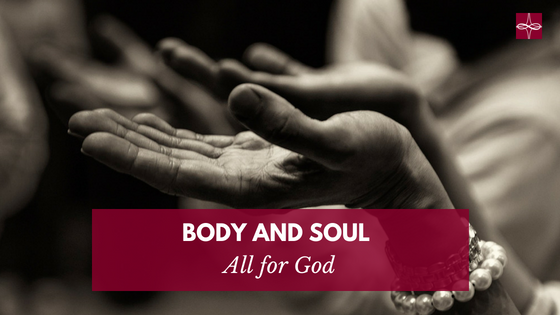

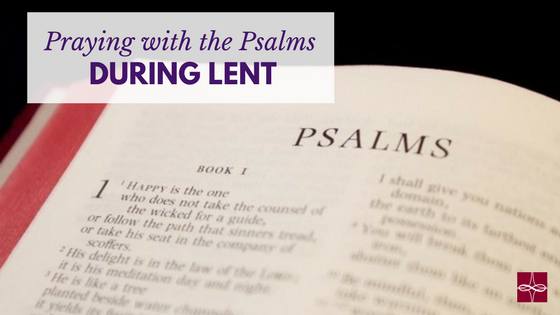

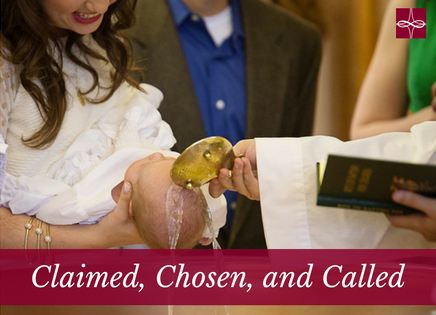

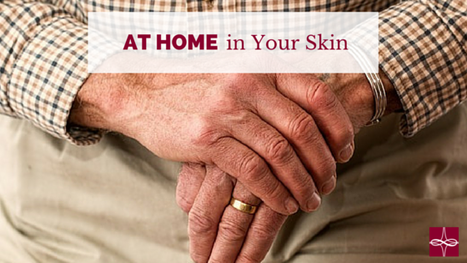

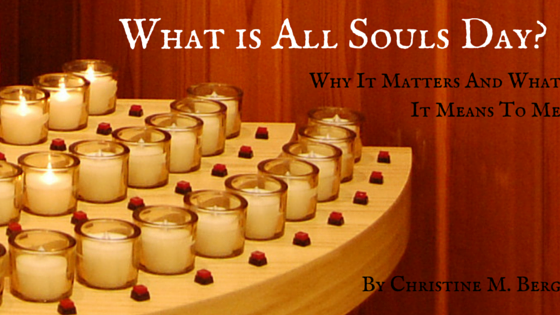


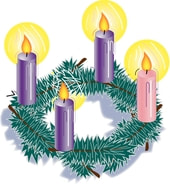
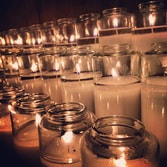

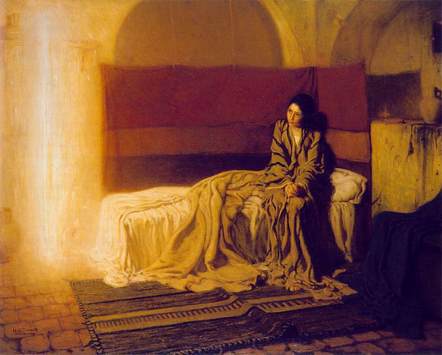
 RSS Feed
RSS Feed